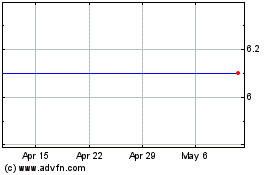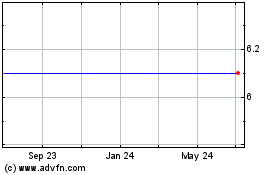After a glitzy roadshow, Ferrari's long-awaited initial public
offering is finally at the starting line, with the stock likely to
be priced Tuesday and the first day of trading on the New York
Stock Exchange expected Wednesday.
Investors will be carefully watching the stock's initial
performance, given the rich price range set for the new shares and
a difficult IPO market.
Fiat Chrysler Automobiles NV is selling about 10% of Ferrari in
the IPO. At the top of its projected range of $48 to $52 a share,
the sports-car maker would have a stock-market value of $9.8
billion.
That range is much higher than most initial forecasts when plans
for the IPO were first announced a year ago, but below what Fiat
Chrysler had targeted.
Sergio Marchionne, chairman of Ferrari and chief executive of
Fiat Chrysler, has been talking up Ferrari for the past week at a
roadshow that featured Ferraris parked in prominent places in
Manhattan and that kicked off with a luncheon at New York's St.
Regis hotel, where more than 200 people filled the rooftop ballroom
and mingled in two overflow rooms.
The roadshow also stopped in Boston before crossing the Atlantic
to London. At one event in London, it drew 200 people, double the
expected number.
Mr. Marchionne and Ferrari Chief Financial Officer Alessandro
Gili also wooed potential investors at Ferrari's historic
headquarters in Maranello, in northern Italy, and were scheduled to
make final stops in San Francisco and Los Angeles before the share
pricing.
Ferrari's fair value has been a point of intense debate among
analysts and investors since the beginning. Right after the
announcement, many analysts put Ferrari's value at between $5
billion and $7 billion. Though a valuation approaching $10 billion
is regarded as a victory for Mr. Marchionne, he initially had been
pushing for as much as $13.5 billion.
At the top end of the price range Ferrari is reasonably priced
and "may be a very appealing opportunity," said Brian Hamilton,
chairman of Sageworks, which does financial analysis of privately
held companies.
Though major stock markets have rebounded lately, Ferrari will
be facing a skittish IPO market. In recent weeks, Digicel Group
Ltd., Neiman Marcus Group and Albertsons Cos. have canceled or
postponed public offerings.
Mr. Marchionne has argued that Ferrari is recession-proof, as
evidenced by its strong financial results throughout the downturn
that began in 2007, which battered other car makers and
luxury-goods companies. Ferrari revenue and profit fell in 2009 at
the depth of the downturn, but then quickly rebounded to precrisis
levels and have continued to grow.
Such a strong performance has been typical of Ferrari, which,
according to some analysts, accounts for more than a third of Fiat
Chrysler's overall market value. Ferrari's operating profit margin
is triple that of its parent's; it makes up 12% of Fiat Chrysler's
operating profit, even though it brings in just 3% of its
revenue.
"While Ferrari serves as a luxury brand and a prestige builder
for Fiat Chrysler, it also provides a significant amount of revenue
and earnings for its parent company," said Mr. Hamilton.
Intentionally capping production at about 7,000 vehicles a year
has been a pillar of Ferrari's strategy, adding scarcity value. On
average, new customers spend a year on its waiting list before they
take possession of their Ferrari.
Now, Mr. Marchionne, who has personally handled the bulk of the
presentations during the roadshow while sporting his trademark
sweater-shirt combo, is getting ready to change course.
In its IPO prospectus, Ferrari said it would boost production in
2019 to 9,000 vehicles, close to the 10,000 that Mr. Marchionne
says the company could sell annually without damaging its prestige.
He has proposed increasing sales in markets such as China—where
demand is still hot despite a slowdown in the luxury market—while
keeping them largely steady in mature markets like the U.S. and
Europe.
"We now believe [production of 9,000 cars] is conservative,"
said Adam Wyden, managing member with ADW Capital Management LLC,
who attended Ferrari's presentation in New York. "Mr. Marchionne,
during the roadshow, said Ferrari will produce 7,700 vehicles in
2015. That would put Ferrari's growth rate on track to be above
10,000 units by 2019."
After selling about 10% of Ferrari in the IPO, Fiat Chrysler
plans to distribute the other 80% it owns to its shareholders early
next year. The remaining 10% of Ferrari is owned by Piero Ferrari,
son of the company's founder, Enzo Ferrari.
Following the spinoff, Italy's Agnelli family, the largest
shareholder in Fiat Chrysler, will own about a quarter of Ferrari.
The family's stake, coupled with that of Mr. Ferrari, who has said
he has no plans to sell, as well as a loyalty share program, which
gives longer-term shareholders extra voting rights, will protect
Ferrari from unwanted suitors.
UBS Group AG is the IPO's lead underwriter and is being helped
by Bank of America Corp., Allen & Co., Banco Santander SA, BNP
Paribas SA, J.P. Morgan Chase & Co. and Mediobanca.
Write to Eric Sylvers at eric.sylvers@wsj.com and Jeff Bennett
at jeff.bennett@wsj.com
Subscribe to WSJ: http://online.wsj.com?mod=djnwires
(END) Dow Jones Newswires
October 18, 2015 20:55 ET (00:55 GMT)
Copyright (c) 2015 Dow Jones & Company, Inc.
Banco Santander (NYSE:STD)
Historical Stock Chart
From Mar 2024 to Apr 2024

Banco Santander (NYSE:STD)
Historical Stock Chart
From Apr 2023 to Apr 2024
